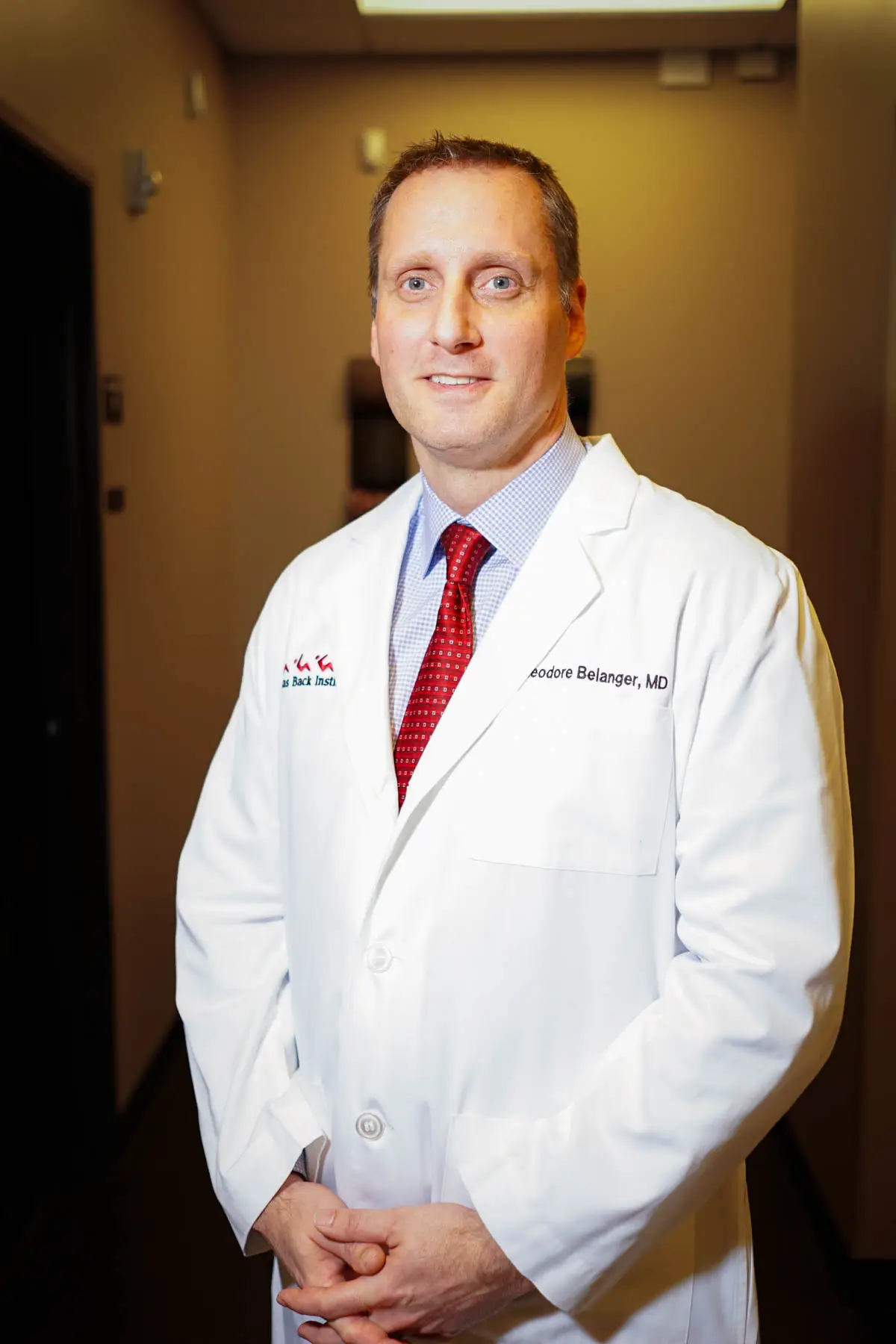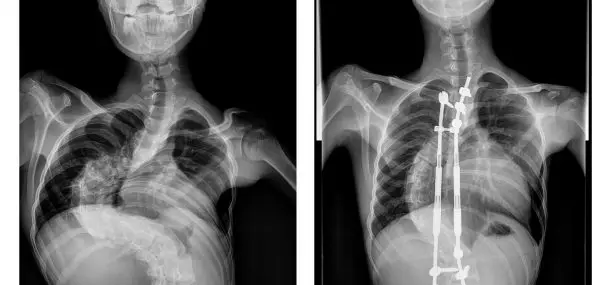The lives of two twin brothers from Ethiopia were changed forever in December 2016. Tamirat and Markos Bogale both suffered from a debilitating spine disease called scoliosis. With the help of many organizations in Africa and America, they were transported to Plano, Texas and put in the hands of Texas Back Institute spine surgeon Dr. Ted Belanger, who specializes in procedures which correct this disease.
Dr. Belanger shared the good news about these two, brave young men with an update on their post-operative conditions.
“Both patients are doing very well,” he noted in a recent interview. “Markos had a more simple surgery than his brother and he is recovering nicely. He should be able to travel back to Ethiopia in late February. Tamirat had a more complicated scoliosis condition, with a greater spinal curvature. His first surgery was successful but he will require another procedure. In the interim between the two surgeries, we will gradually correct his spinal curvature by using a new technology called ‘magnetic growing rods.’”
A Medical Device That’s Right out of Star Trek
“The device we used in Tamirat’s procedure is fascinating technology,” Dr. Belanger said. “It’s almost like something out of Star Trek.
“Historically, very young patients with scoliosis are too small to benefit from the usual fusion procedure we use with older patients. If we were to fuse the spine of a youngster, it will stop growing and impact their height, size of their chest and even the thoracic area which affects the lung volume and even lifespan.
“When we operate on a young patient, we place ‘growing rods’ in the spine, then replace them with additional surgery every few months to place longer rods in the spine as the child grows. The latest innovation in these devices is called a ‘magnetic growing rod’ which can be lengthened by an external device and they dramatically improve the procedure.
“This spares the patient multiple trips to the operating room,” Dr. Belanger noted. “This equates to less risk since it reduces the need for multiple incisions and the potential for surgical infections.
“The manner in which I used these magnetic growing rods with Tamirat is different from most previous procedures completed by spine surgeons. Normally, the patient would be placed in traction for many months while his spine continues to gradually straighten. Using the growing rods allows him to be out of traction and mobile, while still gradually correcting his curvature. . It’s much easier on the patient,” he noted.
What Causes Scoliosis?

Spine surgeons and other specialists who treat scoliosis are making progress in understanding this incurable disease. This knowledge leads to more effective treatment options. In many ways, Tamirat and Markos are expanding the knowledge base of scoliosis treatment, thereby making an important contribution to medical science.
“We do know some things about this disease,” Dr. Belanger noted. “For example, we are sure that scoliosis is a genetically inherited disease. While there are several types of scoliosis, most patients have what’s called ‘idiopathic scoliosis’ and the disease is more common among teenage girls than other age and gender groups.
“We know something about the genetic factors that can cause this condition, but our knowledge is still somewhat limited. Research has also been conducted on such factors as congenital abnormalities and how they affect the onset of scoliosis.”
It Takes a Village
Dr. Belanger is the first person to note that his mission to bring treatment for scoliosis to the “third world” of Ethiopia could not be possible without the contributions of many organizations and individuals. He noted a few.
“As you can imagine, I have a long list of people to thank,” he laughed. “I apologize to anyone I have left off.”
“We get enormous support from the hospital system – specifically Medical City Plano – which allows us to conduct the procedure, care and follow-up at no charge to the patients. We also get implants for the surgery donated from medical device companies which include: Medtronics, Globus and NuVasive, which manufactures the Magec® magnetic growing rods.
“Texas Back Institute provides a great deal of support for this mission by giving me the freedom to take some of my time to perform the surgery and travel to Africa every year. They also supply a great deal of administrative and legal counseling, and individuals within the TBI family go above and beyond by acting as a host family for the boys, as well as ensuring they are taken care of during this long process.
“Dr. Rick Hodes is also critical to the success of this mission. He is an American who lives in Ethiopia and looks after hundreds of patients who need spine care. He helps the patients who need more complicated care to find resources like us.”
The Best Part of His Mission
Dr. Belanger is one of the busiest spine surgeons on the TBI team (just try and schedule an interview with him sometime!) and yet he takes time –hundreds of hours – away from his practice and family to help two youngsters whom he has never met before. Why?
“The ‘business’ of medicine has become more and more, exactly that, business,” he said. “With the intrusive ways the insurance industry and government have eroded the joy of practicing medicine, this is a great way for me – personally – to get back to the purest form of taking care of people.
“I just go and find people who need me the most and I do what I’m good at to try and help them the best way I can. It’s purely for the gratitude and satisfaction of helping somebody. There’s no other ‘game’ in it beyond that.
“For me, I think this is beautiful and if everybody did something like this – donating a little part of whatever their special skill is – the world would be a better place,” he concluded.


